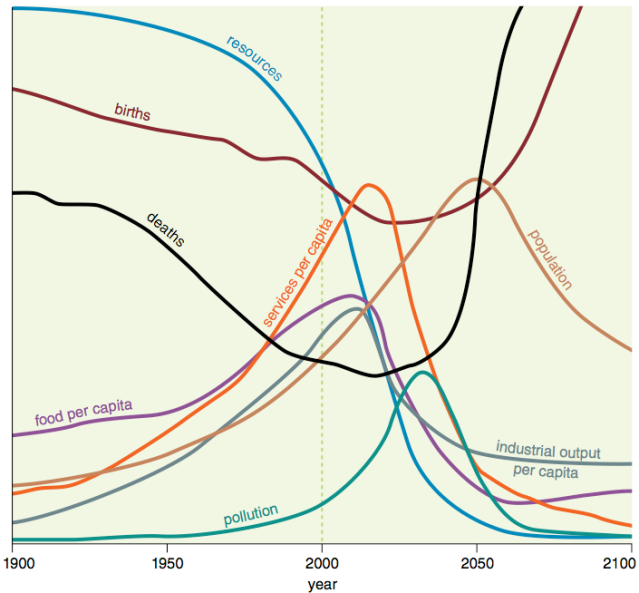Resource shortages and resource wars
Posted: Mon Apr 29, 2013 9:28 am
Another day in the Universe
https://www.onthenatureofthings.net/forum/
https://www.onthenatureofthings.net/forum/viewtopic.php?t=1930
Water is the main resource to watch. Potable drinking water is in an ever shortening supply in many parts of the world. Not from global warming but from population densities needing more than can be supplied.

.
Some years later, Haaretz would reveal the existence of a study (Jaffee Center for Strategic Studies, Tel-Aviv university) under General Aaron Yariv, a former intelligence services chief, which outlined a “zone of hydraulic security,” which called for placing water resources in Syria and Lebanon under full Israeli control. Disputes continued unabated and the status quo maintained until 1982 when the military prowess of both sides were tested.
A 1987 book by Col. Emmanuel Wald of the Israeli General Staff entitled “The Ruse of the Broken Vessels: The Twilight of Israeli Military Might (1967-1982)” reveals the aims of the 1982 invasion of Lebanon and the month of pre-planning that had gone into it. Wald writes that Ariel Sharon’s master plan codenamed “Oranim” was to defeat the Syrian troops deployed in the Bekaa Valley all the way to the district of Baalbek in North of Lebanon. According to Wald, “during the first days, it was quietly approved by the U.S.”
With this aim, on June 6, 1982, Israel advanced into Lebanon. However, the Syrian army halted the Israeli army advance in the battle of Sultan Yakub and the battle of Ain Zahalta. Sharon’s plan to conquer all of Lebanon and destroy Syria as a military power was thwarted. In reviewing the book and the battles, the famous scholar and activist, Israel Shahak, opined that “the principal purpose of the Israeli invasion of Lebanon was destruction of the Syrian Army.”
Shahak posits that Israel needs to win its wars quickly or not at all. In spite of purported technological and nuclear superiority, another assault on Syria would not predictably bring an easy win to Israel and defenses could ‘drag out a war endlessly.’ He further argues that during the entire history of the Israeli regime, Israeli Jews have shown themselves to be highly sensitive to their losses, and high losses make Israelis “susceptible to political arguments against modes of domination and oppression which they otherwise would accept.”
Shahak’s analysis shed a light on the events that pursued the failure of “Oranim” as outlined in “The Syria Imperative.” Israel continues to pursue its grand strategy, using a different tactic given its awareness of, and its familiarity with the strengths of the Syrian army - an army which must be disrupted from within given Israel’s 1982 failure to do so. And this is the primary reason for arming terrorists posing as “opposition.”
It is not without irony that Netanyahu has recently admitted that he does not rule out arming Syrian rebels, given Israel’s age-old tactic of arming minorities or rebels and cultivating dissent and chaos (such as the Anya Nya in Sudan, later the Sudanese People Liberation Army (SPLA), and the leader of the Sudanese rebels, John Garang, armed by Israel from neighboring countries). This is a scenario being repeated in Syria.
Paradoxically, the [Persian] Gulf Cooperation Council ([P]GCC), which is today on a mission to secure Israel’s vision (with a nod from Washington) by arming rebels and undermining Syria, were all in favor of securing Syria in 2003 when they told Washington, "We think the threat to Syria should stop. We don't think Syria wants a war or to escalate any situation. We reject any infringement of Syria's security.” There is no end to their duplicity.
Amos Yadlin, the outgoing military intelligence chief, warned the Knesset Foreign Affairs and Defense Committee in November 2010 that Israel's next war would take longer and be fought on more fronts.
Yaldin warned that Syria, in particular, posed a greater military obstacle to Israel than at any time in the past three decades. It would appear that the unrest in Syria has allayed his concerns. The Syrian forces that put up such a resistance in 1982, are now engaged in fighting terrorists, while the world is being told that they are the violators. Perhaps Netanyahu’s plan will succeed where Sharon’s Oranim failed.
Regardless, it is important to change the accepted narrative about the unrest in Syria. Given the decades-long demonization of Iran, it may be more palatable to associate the fueling of unrest in Syria to a ‘weaker’ Iran, but let there be no mistake - Syria today is in turmoil in order to promote Israel’s grand strategy - even as the perpetrator - Israel, plays the victim and warns of chemical weapons use by Assad’s regime, demanding intervention.
.
Probably all the oil in the ME is eventually going to be used to make water for the region.Enki wrote:Israel should just pioneer desalination and hoover up the Mediterranean.
Thank You Very Much for your post, Doc.Doc wrote:Probably all the oil in the ME is eventually going to be used to make water for the region.Enki wrote:Israel should just pioneer desalination and hoover up the Mediterranean.
Ah, nuclear power plants for desalinizationmonster_gardener wrote:Thank You Very Much for your post, Doc.Doc wrote:Probably all the oil in the ME is eventually going to be used to make water for the region.Enki wrote:Israel should just pioneer desalination and hoover up the Mediterranean.
Or they could use nuclear power........
Either directly from reactors to power desalinization........
Yep...Heracleum Persicum wrote:.
World enters a resource-shock era

Ah? I thought it meant Prudence In -> Prudence Out.Typhoon wrote:PIPO. Pessimism In -> Pessimism Out